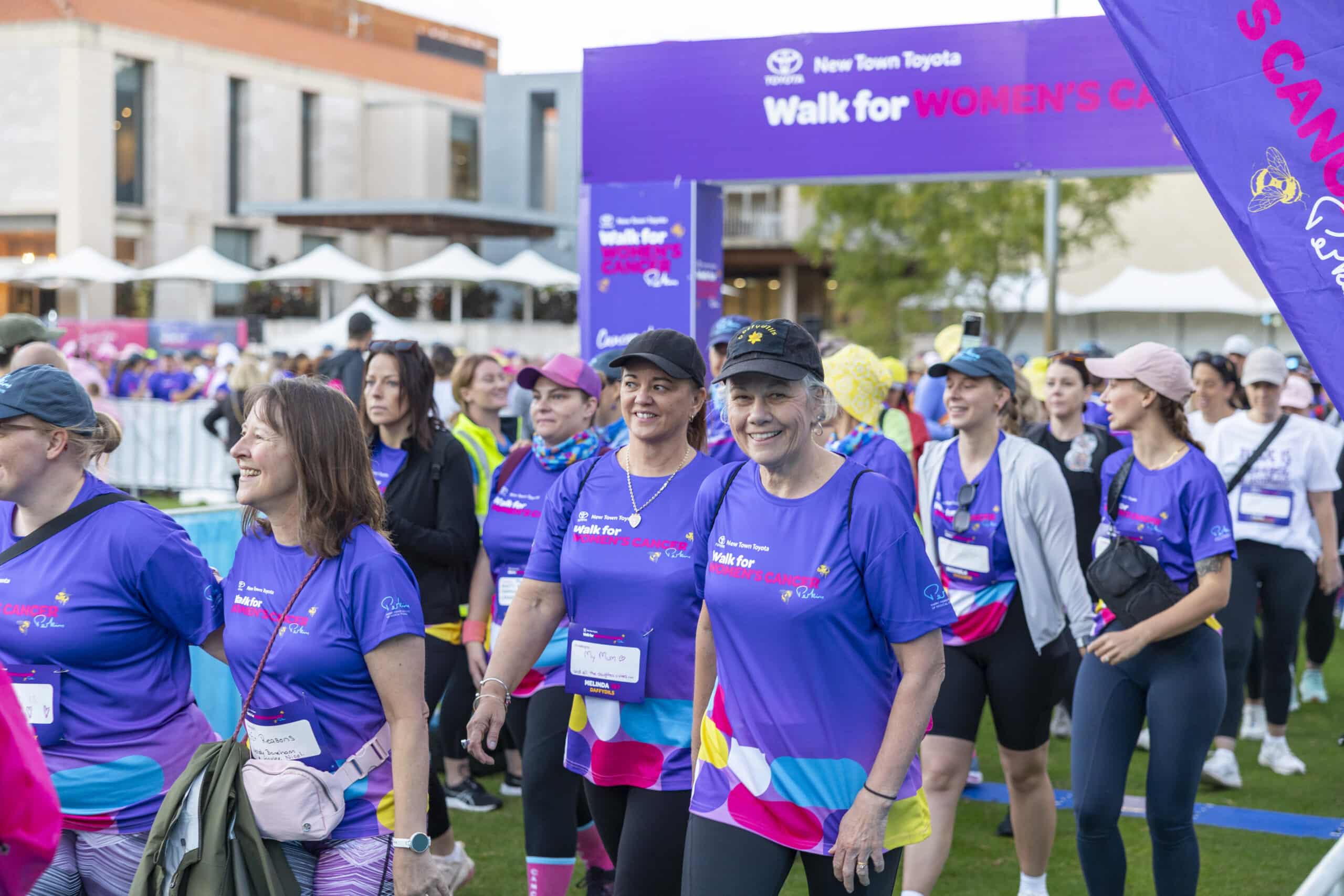
More than 1000 Walkers hit the pavement this morning for the New Town Toyota Walk for Women’s Cancer, taking place at Riley Oval at UWA Crawley.
The Walk benefits women’s cancer research at the Harry Perkins Institute of Medical Research and is an opportunity to take meaningful steps toward a future where women’s cancer including breast and ovarian cancer could become non-lethal.
Last year, Walkers raised $1.45 million with 100% of the funds going directly back to the Perkins to fuel WA’s brightest scientists.
This year the Walkers will be tackling the 35km or 42 km walk, passing by the Perkins building in Nedlands, through Shenton Park, Kings Park, Perth city foreshore, East Perth, Burswood, the South Perth Foreshore, Mounts Bay Road and back to Riley Oval at UWA, where the walk begins. There are also those who have spread the kilometres out walking 5km a day over six days and completing the final 5km on Walk Day.
There are also plenty of humble bees which are celebrated at the Walk. This is because Perkins researcher Associate Professor Pilar Blancafort made international headlines in 2020 with the discovery that venom from honeybees was found to kill aggressive breast cancer cells.
Their results revealed that honeybee venom rapidly destroyed triple-negative breast cancer and HER2-enriched breast cancer cells–some of the most hard-to-treat cancer cells.
Perkins CEO, Professor Peter Leedman AO, said the Walkers are single minded in their pursuit of better cancer prevention and treatments.
“At the Walk we support those who are currently battling cancer. We want to make a difference to those who will face it in the future, and we remember the women who are no longer with us.
“We have some of the most amazing women’s cancer researchers at the Perkins. In the past year, the Walkers and their supporters have funded research to continue investigating the use of honeybee venom to treat breast cancer. They’ve also have funded the further development of a finger-mounted breast cancer probe for use during breast cancer surgery to prevent the need for secondary surgeries.
“Generous Walkers and the people who support them are also supporting a world-first collaborative project investigating how genes and cell types contribute to tumour stiffness that may lead to more rapid diagnosis and better treatment options.
“And, most recently, the donated funds have gone towards an ovarian cancer support nurse who is assisting with collecting invaluable samples from patients who we are using to advance our knowledge of this disease.
“None of this would have been possible without the support of the Walkers and their friends and family who donate to support them. These amazing individuals taking part in the Walk are the engine that drives the Perkins and for that, I’m immensely grateful,” Professor Leedman said.
Simply, the Walk can be summed up in one sentence: “We may start the walk as strangers, but we end it as family.”
Cancer statistics
- 1 in 7 Australian women will be diagnosed with breast cancer.
- 1 in 100 Australian women will be diagnosed with ovarian cancer.
- Breast cancer is the second and ovarian cancer is the eighth most diagnosed cancer in Australia.
- On average 73,000 new cases of cancer are diagnosed in Australian women each year.
- One in two women will be diagnosed with cancer by the age of 85
- 20,973 Australian women diagnosed with breast cancer in 2023.
- 3,300 Australian women died of breast cancer in 2023
